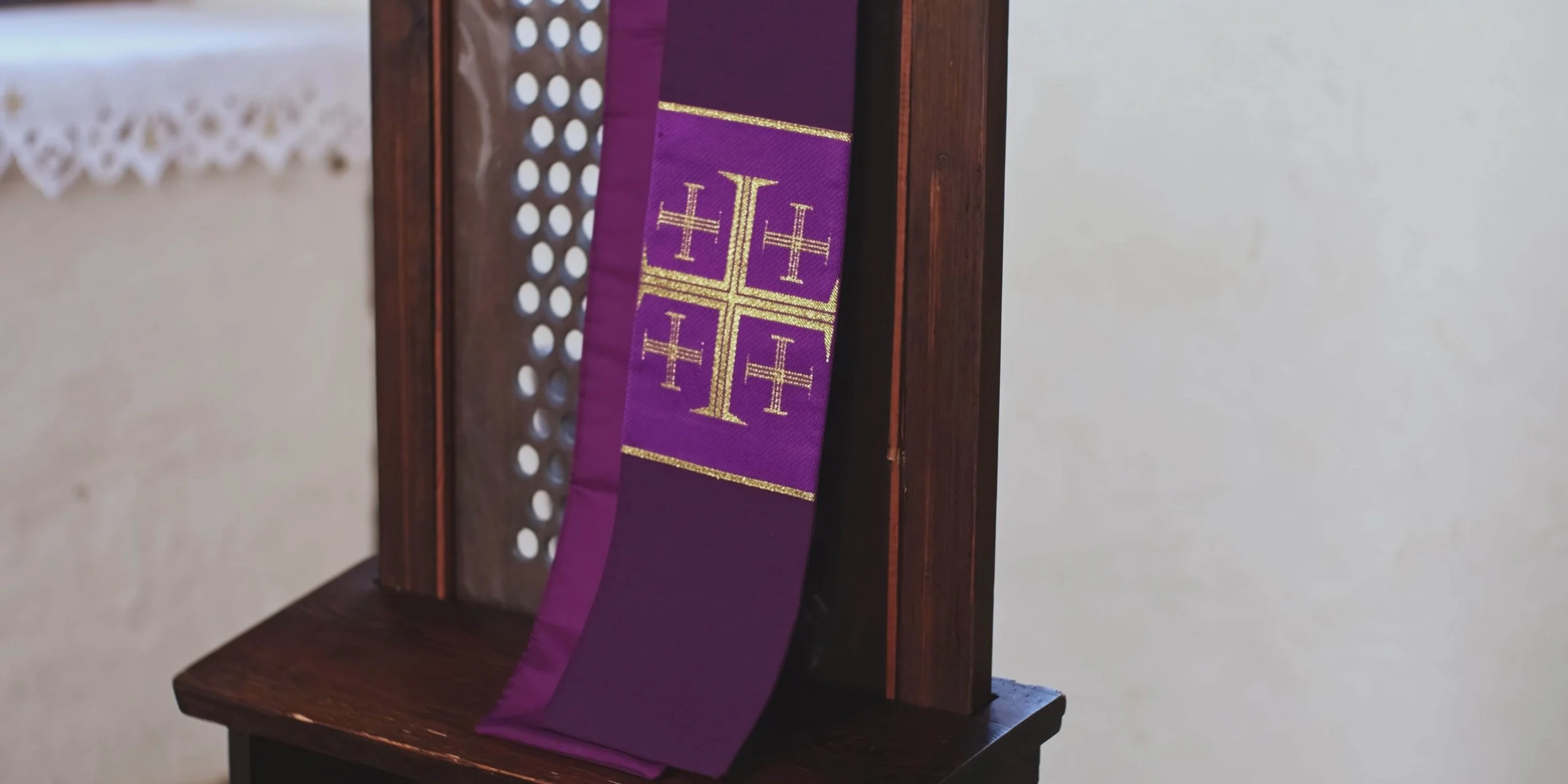Reconciliation
An Encounter with God's Mercy
The Power of Forgiveness
The Sacrament of Reconciliation, also known as Confession or Penance, is a beautiful gift of healing from Jesus Christ. It’s a moment where we can lay down our burdens, acknowledge our failings in the presence of God's love, and hear the powerful words, "I absolve you of your sins." This sacrament is not about judgment, but about experiencing the profound, personal, and liberating mercy of a loving Father who always desires to welcome us home.
Scriptural Foundation: After His resurrection, Jesus appeared to His apostles and gave them His own authority to forgive sins: "'Peace be with you. As the Father has sent me, even so I am sending you.' And when he had said this, he breathed on them and said to them, 'Receive the Holy Spirit. If you forgive the sins of any, they are forgiven them; if you withhold forgiveness from any, it is withheld.'" (John 20:21-23)
The Church Teaches: "The whole power of the sacrament of Penance consists in restoring us to God's grace and joining us with him in an intimate friendship." (Catechism of the Catholic Church, 1468)
The Power of Forgiveness
The Sacrament of Reconciliation, also known as Confession or Penance, is a beautiful gift of healing from Jesus Christ. It’s a moment where we can lay down our burdens, acknowledge our failings in the presence of God's love, and hear the powerful words, "I absolve you of your sins." This sacrament is not about judgment, but about experiencing the profound, personal, and liberating mercy of a loving Father who always desires to welcome us home.
Scriptural Foundation: After His resurrection, Jesus appeared to His apostles and gave them His own authority to forgive sins: "'Peace be with you. As the Father has sent me, even so I am sending you.' And when he had said this, he breathed on them and said to them, 'Receive the Holy Spirit. If you forgive the sins of any, they are forgiven them; if you withhold forgiveness from any, it is withheld.'" (John 20:21-23)
The Church Teaches: "The whole power of the sacrament of Penance consists in restoring us to God's grace and joining us with him in an intimate friendship." (Catechism of the Catholic Church, 1468)
How to Make a Good Confession
If it's been a while, don't worry. The priest is there to help guide you.
Click on the button below for a helpful Guide to Confession you can read or print.
The Basic Steps:
1. Examine Your Conscience
Before you arrive, prayerfully reflect on your life since your last confession. The Ten Commandments are a helpful guide.
2. Go to Confession
You’ll begin by making the Sign of the Cross and saying, “Bless me, Father, for I have sinned. It has been (how long) since my last confession.” Confess your sins, listen to the priest’s counsel, and receive a penance.
3. Pray the Act of Contrition
The priest will ask you to pray an Act of Contrition to express your sorrow.
4. Receive Absolution
The priest will extend his hands and pray the prayer of absolution, freeing you from your sins.
5. Do Your Penance
Fulfill the penance the priest gave you. This is usually a set of prayers or a good work that helps to heal the harm caused by sin.
Confession at Saint Ambrose Barlow
Upon request
First Confession for Children
Preparation for First Reconciliation is part of the two-year program for children preparing for First Holy Communion. Please contact our Director of Faith Formation for more information.
Ask Us About It
For inquiries about the Sacrament of Reconciliation (Confession), use this confidential form. Your message will go straight to our Parish Priest.
Frequently Asked Questions
-
We confess to a priest because that is the method Jesus established. He gave his apostles His own divine authority to forgive sins: "If you forgive the sins of any, they are forgiven them" (John 20:23). The priest acts in the person of Christ, giving us the tangible assurance and grace of God's forgiveness.
-
Do not be afraid. The priest is bound by the "Seal of Confession," the most solemn obligation of secrecy. He can never repeat what he hears. If you honestly forget a mortal sin, your confession is still valid, and your sins are forgiven. You can simply mention it in your next confession. God knows your heart (CCC, 1456).
-
The Church requires the faithful to confess any serious sins at least once a year. However, she encourages more frequent confession (e.g., monthly) as a powerful means of growing in holiness, overcoming venial sin, and strengthening your relationship with God (CCC, 1457-1458).

Through the priest, who acts in the person of Christ, this sacrament reconciles us to God and to the Church. It restores the grace lost by sin, brings peace to our conscience, and gives us the spiritual strength to begin anew.
